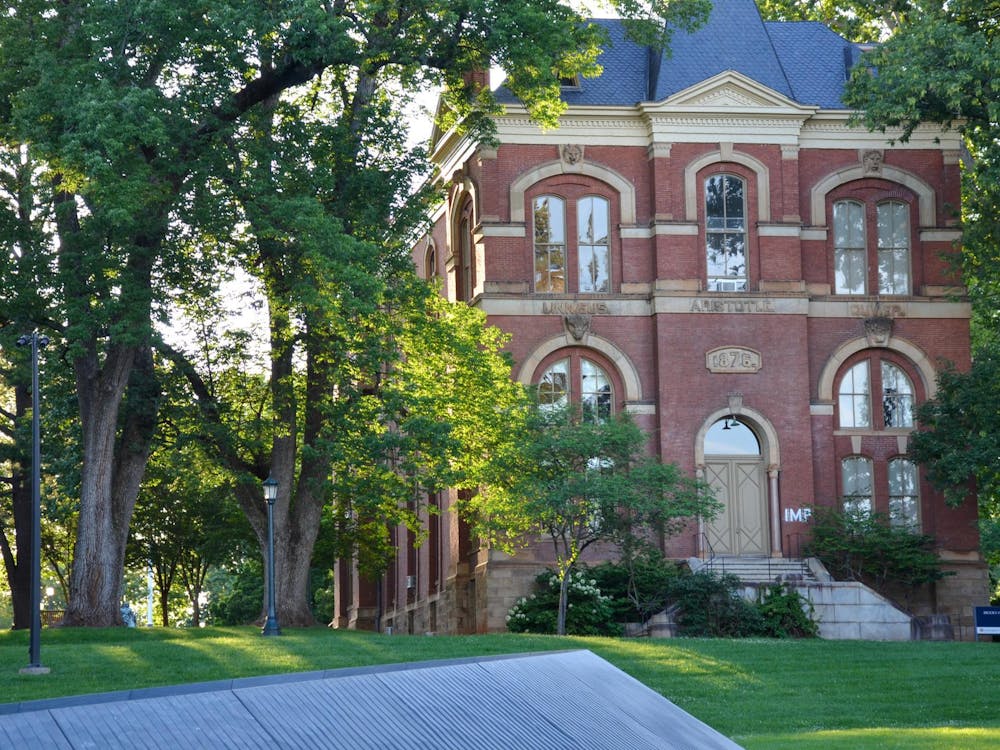Former student Ayola Greene filed a lawsuit Jan. 1 seeking $10.5 million against the University and the Honor Committee for racial discrimination and violating her constitutional due process rights.
Greene, who had her degree rescinded in May 1995 for failure to pay bad checks, filed her case in Federal District Court seeking $8 million in punitive damages, $2.5 million in compensatory damages plus attorney's fees and lost wages.
Three cases involving the honor system now are pending against the University.
Greene's brief alleges racial discrimination in the case because Greene was described as black on the Honor Committee's "case status form."
"African-Americans are more likely to be brought up on Honor Committee violations and found guilty of such then are any other group at the University," the brief states.
The suit also alleges the Committee violated Greene's constitutional rights by not notifying her of the trial date and therefore taking her degree and depriving her of property "without due process pursuant to the Fifth and Fourteenth Amendments."
Greene received her Bachelor's degree in Architecture from the University in the spring of 1992.
According to the brief, Greene bounced several checks in the spring of 1992, but paid them before her graduation.
In the fall of 1992, five or six more of Greene's bad checks, totaling about $150, were brought to the Committee's attention. All the checks were paid by July 21, 1993 - more than a year later.
After further investigation and a pre-trial hearing, which Greene participated in by phone, the Honor Committee set a trial date. According to the brief, the Committee never notified Greene of the trial.
Greene did not attend the trial and on March 11, 1993 Scott Tumperi, then vice chairman for trials, sent a letter to the University Registrar to discontinue Greene's enrollment.
Tumperi said he did not remember the Greene trial specifically, but that usually when an accused student does not show up for trial, a trial is held in their absence.
"It's not that much of a rarity for someone not to show up, [but] unless they write a letter saying they have left the University admitting guilt we will have a trial," he said.
The letter said that "due to [Greene's] failure to appear at trial, she has left the University admitting guilt," according to the brief.
The faculty rescinded Greene's degree on May 19, 1995.
The Honor Committee denied grievances by Greene in Sept. 1996 and March 1997.
Committee Chairman Hunter Ferguson and Rector John P. Ackerly III would not comment on the case specifically because it is in litigation.
Bounced checks are handled by the Bad Check Committee in conjunction with the Office of the Dean of Students, Ferguson said.
The Honor Committe's Bad Check Committee "is intended to maintain an atmosphere of trust among merchants," Ferguson said.
If a student bounces a check, they are given 14 days to reimburse the merchant. If the student does not act to reimburse the merchant they will be disenrolled from classes.
"Only in instances where people are suspected of habitual or intentional bad check writing; then [the case] is turned over into an honor case," Ferguson said. "It is usually cleared up right away."
The Greene case is the most recent of three cases pending against the University and its honor system.
This fall, former student Maurice Guillaume Goodreau III filed a $1.75 million lawsuit against the Board of Visitors and the University.
The University rescinded Goodreau's degree in 1998 after the Honor Committee found him guilty of improperly using Karate Club funds for his own personal expenses while he was a University student.
Goodreau has not accused the University of racial discrimination, but like Greene, he says his degree was revoked unconstitutionally.
In Nov. 1998 former student Jonathan Cobb filed a $1.05 million lawsuit against the University for failure to provide due process, breach of contract and breach of judiciary duty after he was expelled for cheating on an exam.
Greene and her lawyer, Maynard M. Henry, Sr. could not be reached for comment.






